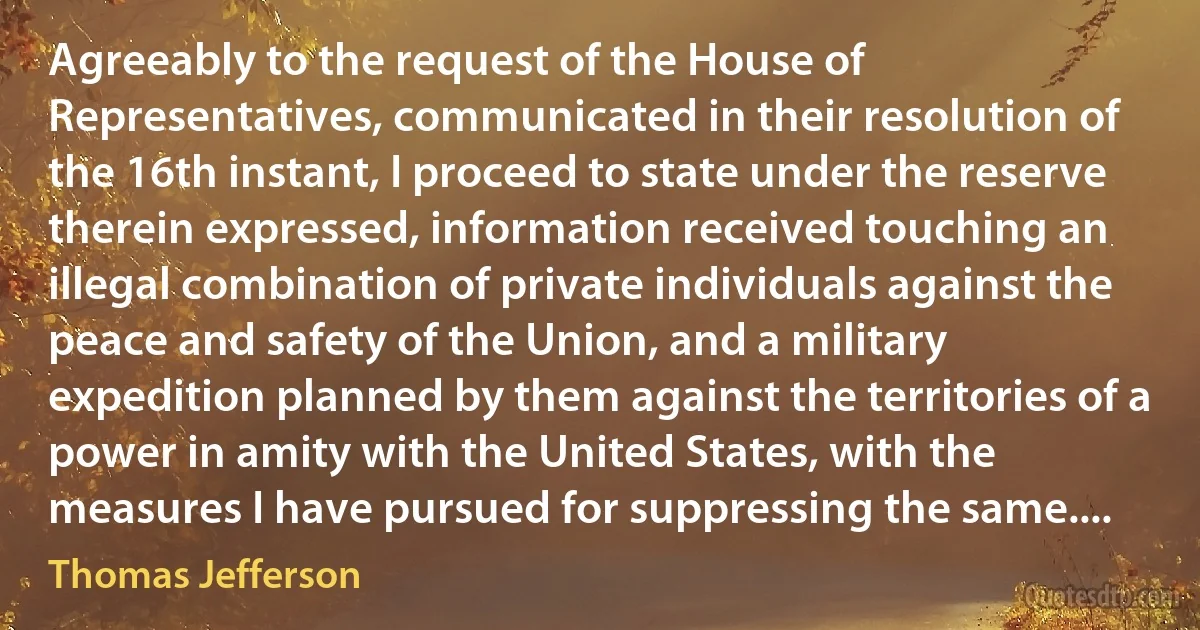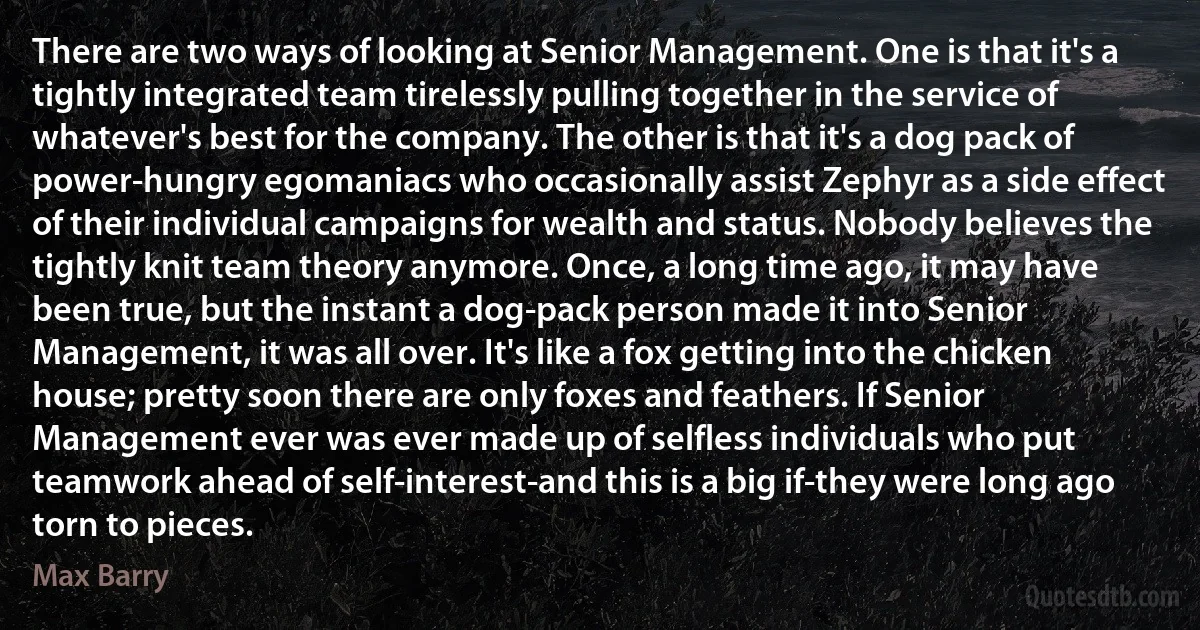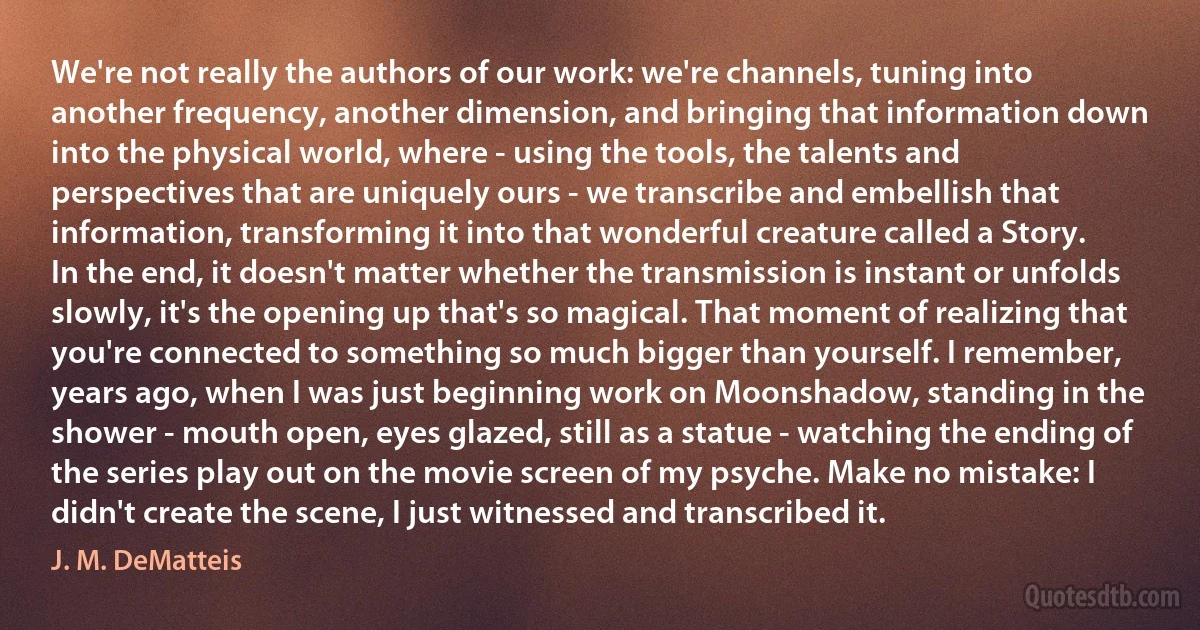Instant Quotes - page 24
Each bud flowers but once and each flower has but its minute of perfect beauty; so, in the garden of the soul each feeling has, as it were, its flowering instant, its one and only moment of expansive grace and radiant kingship. Each star passes but once in the night through the meridian over our heads and shines there but an instant; so, in the heaven of the mind each thought touches its zenith but once, and in that moment all its brilliancy and all its greatness culminate. Artist, poet, or thinker, if you want to fix and immortalize your ideas or your feelings, seize them at this precise and fleeting moment, for it is their highest point. Before it, you have but vague outlines or dim presentiments of them. After it you will have only weakened reminiscence or powerless regret; that moment is the moment of your ideal.

Henri-Frédéric Amiel
The years of childhood...My memory runs head-on into a scene that is like a symbol of those years. To me as I am today, that scene represents childhood itself, past and irrecoverable.When I saw the scene I felt the hand of farewell with which childhood would take its leave of me. I had a premonition at that instant that all my feeling of subjective time, or timelessness, might one day gush forth from within me and flood into the mold of that scene, to become an exact imitation of its people and movements and sounds; that simultaneous with the completion of this copy, the original might melt away into the distant perspectives of real and objective time;and that I might be left with nothing more than the mere imitation or, to say it another way, with nothing more than an accurately stuffed specimen of my childhood.

Yukio Mishima
That day, the instant I looked upon the picture, my entire being trembled with some pagan joy. My blood soared up; my loins swelled as though in wrath. The monstrous part of me that was on the point of bursting awaited my use of it with unprecedented ardour, upbraiding me for my ignorance, panting indignantly. My hands, completely unconsciously, began a motion they had never been taught. I felt a secret, radiant something rise swift-footed to the attack from inside me. Suddenly it burst forth, bringing with it a blinding intoxication...

Yukio Mishima
From November of 1892 I passed through astonishing and crucial experiences, following which, in the spring of 1893, there occurred the most extraordinary event of my life. I had crossed 14th Street at 4th Avenue, in New York City. Cars and people were hurrying by. While stepping up to the northeast corner curbstone, Light, greater than that of myriads of suns opened in the center of my head. In that instant or point, eternities were apprehended. There was no time. Distance and dimensions were not in evidence.

Harold W. Percival
His glance commanded in an instant all that was novel in [a] scenery, and a few outlines on paper recorded it unintelligibly to others. He placed these pictorial memoranda upon mill-board, not larger than a sheet of letter-paper, quite a confused mass. How he worked out the details from such sketches seemed to me wonderful. His views around Plymouth, in the engravings from his pictures, were marvelously varied in effect, as well as faithful representations. His first sketches showed little of the after-picture to the unpracticed eye; perhaps he bore much away in memory, and these were only a kind of shorthand, which he deciphered in his studio.

J. M. W. Turner
When death comes, it does not ask your permission; it comes and takes you; it destroys you on the spot. In the same way, can you totally drop hate, envy, pride of possession, attachment to beliefs, to opinions, to ideas, to a particular way of thinking? Can you drop all that in an instant? There is no "how to drop it”, because that is only another form of continuity. To drop opinion, belief, attachment, greed, or envy is to die - to die every day, every moment. If there is the coming to an end of all ambition from moment to moment, then you will know the extraordinary state of being nothing, of coming to the abyss of an eternal movement, as it were, and dropping over the edge - which is death. I want to know all about death, because death may be reality; it may be what we call God - that most extraordinary something that lives and moves and yet has no beginning and no end.

Jiddu Krishnamurti
I would count him blessed and holy to whom such rapture has been vouchsafed in this mortal life, for even an instant to lose thyself,
as if thou wert emptied and lost and swallowed up in God, is no human love; it is celestial.
But if sometimes a poor mortal feels that heavenly joy for a rapturous moment, then this wretched life envies his happiness,
the malice of daily trifles disturbs him, this body of death weighs him down, the needs of the flesh are imperative,
the weakness of corruption fails him, and above all brotherly love calls him back to duty.
Alas! that voice summons him to re-enter his own round of existence; and he must ever cry out lamentably,
‘O Lord, I am oppressed: undertake for me' (Isa. 38.14); and again, ‘O wretched man that I am! who shall deliver me from the body of this death?' (Rom. 7.24)

Bernard of Clairvaux
I made up a lot of instant barbarian folklore-I told 'em a Vor prides himself on self-control, that it's not considered polite on Barrayar for a man to, you know, before his lady has. Three times. It was considered insulting to her. I stroked, I rubbed, I scratched, I recited poetry, I nuzzled and nibbled and-cripes, my fingers are cramped.” His speech was a bit slurred, too, Miles noticed. "I thought they'd never fall asleep.” Ivan paused; a slow smirk displaced the snarl on his face. "But they were smiling, when they finally did.

Lois McMaster Bujold
Pornography is art, sometimes harmonious, sometimes dissonant. Its glut and glitter are a Babylonian excess. Modern middle-class women cannot bear the thought that their hard-won professional achievements can be outweighed in an instant by a young hussy flashing a little tits and ass. But the gods have given her power, and we must welcome it. Pornography forces a radical reassessment of sexual value, nature's bequest of our tarnished treasure.

Camille Paglia
The idea occurred to me that art was perhaps this-the psychological component of the autoimmune system. It works on the artist as a healing. But it works on others too, as a medicine. Hence our great, insatiable thirst for it. However it comes out - whether a design in a carpet, a painting on a wall, the shaping of a doorway - we recognize that medicinal element because of the instant healing effect, and we call it art. It consoles and heals something in us. That's why that aspect of things is so important, and why what we want to preserve in civilizations and societies is their art - because it's a living medicine that we can still use. It still works. We feel it working. Prose, narratives, etcetera, can carry this healing. Poetry does it more intensely. Music, maybe, most intensely of all.

Ted Hughes
For a number of years the deeds and actions of party and government bodies trailed behind the needs of the times and of life. The problems in the country's development built up more rapidly than they were being solved. The inertness and stiffness of the forms and methods of administration, the decline of dynamism in our work and an escalation of bureaucracy - all this was doing no small damage. Signs of stagnation had begun to surface in the life of the society. The situation called for change, but a peculiar psychology - How to improve things without changing anything? - took the upper hand. But that cannot be done, comrades. Stop for an instant, as they say, and you fall behind a mile.

Mikhail Gorbachev
He knew that sooner or later, in spite of all protecting charms and precautions, Death would creep silently on him or spring suddenly from some unguarded moment. This very night his horoscope might signal Death's instant escapeless approach; and though men lived by lies, treating truth's very self as lie to be exploited, the stars remained the stars.

Fritz Leiber
I could not but be struck by the strangers. The lady was a big, handsome blonde woman, clever-looking and capable. But the man riveted my attention. He was dark, and forceful, and masterful, and ruthless. I have never seen so iron a countenance. I did not have much time to analyse the face; the bustle of arrival prevented that. But an instant was enough to make up my mind about him. We separated in the carriage after cordial wishes that we might meet again. When we were on the platform, I asked Irving:
"Who is that man?"
"Why," he said, " I thought I introduced you!"
"So you did, but you did not mention the names of the others!" He looked at me for an instant and said inquiringly as though something had struck him:
"Tell me, why do you want to know?"
"Because," I answered, "I never saw any one like him. He is steel! He would go through you like a sword!"
"You are right!" he said. "But I thought you knew him. That is Burton - Captain Burton who went to Mecca!

Bram Stoker
No fact in the world is instant, infinitesimal and ultimate, a single mark. There are, I hold, no atomic facts. In the language of science, every fact is a field - a crisscross of implications, those that lead to it and those that lead from it. ... We condense the laws around concepts. Science takes its coherence, its intellectual and imaginative strength together, from the concepts at which its laws cross, like knots in a mesh.

Jacob Bronowski



